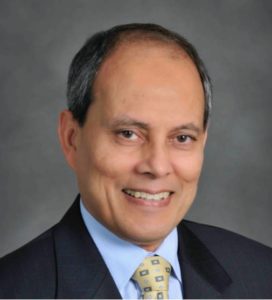Events

The virtual series of IEEE Women in Engineering International Leadership Conference (WIE ILC) 2020.
The IEEE WIE ILC Virtual Series will take place throughout June 2020,
offering 1-hour sessions, live panel discussions, virtual networking
opportunities, and an on-demand library for you to browse when it’s
convenient for you. Registration is free!
Visit http://ieee-wie-ilc.org/virtual2020/ for more information.
#IEEEWIE
IEEE CANADA TECHNOLOGY LEADERSHIP WEBINAR SERIES – III
Speaker: Tom Coughlin of IEEE USA
Topic: IEEE-USA Supports Public Policy For A Better WorldÂ
IEEE-USA supports public policy and career and member services for IEEE members in the USA. This talk will include a brief discussion on what IEEE-USA does and will focus on its public policy activities to support future technologies, funding of science and technology, immigration policies that support a path to citizenship and support for engineers and technologists. I will also discuss the impact of the COVID-19 epidemic and what what IEEE and IEEE-USA is doing to help its members as well as society as a whole, to recover from this extraordinary event. This talk will include discussion of the future of work and the role of technology to enable remote work and new tools to work together in the real world even when we can’t be there physically.
Biography:
Tom Coughlin, President, Coughlin Associates is a digital storage analyst and business and technology consultant. He has over 39 years in the data storage industry with engineering and management positions at several companies. Coughlin Associates consults, publishes books and market and technology reports (including The Media and Entertainment Storage Report and an Emerging Memory Report), and puts on digital storage-oriented events. He is a regular storage and memory contributor for forbes.com and M&E organization websites. He is an IEEE Fellow, Past-President of IEEE-USA and is active with SNIA and SMPTE. For more information on Tom Coughlin and his publications and activities go to www.tomcoughlin.com.
Title: Josephson Arbitrary Waveform Synthesizer as a Quantum Standard of Voltage and Current Harmonics
Speaker: Dr. Dimitrios Georgakopoulos, Senior Research Scientist, National Measurement Institute, Sydney, Australia
Date/Time:Â Thursday, July 09, 2020, 6:30 pm – 7:30 p.m. EDT
Abstract: Josephson arbitrary waveform synthesizers (JAWS) are becoming a viable technology for national metrology institutes and industry to establish quantum standards of direct and alternating voltage. At the National Measurement Institute of Australia (NMIA) we have extended the application of the JAWS to provide a standard of both the magnitude and the phase of harmonics in a distorted waveform. Harmonic analysis is critical in a number of industrial applications such as electric power systems, power electronics, characterization of systems and materials and acoustics and vibration. At present, in the calibrations of power analyzers, the traceability of the magnitude of the harmonics is based on ac-dc transfer measurements. However, there is a gap in the traceability of the phase of the harmonics relative to the fundamental. The NMIA calibration system uses a JAWS chip from the National Institute of Standards and Technology (NIST), USA, a precision inductive voltage divider and a set of current shunts designed and manufactured by NMIA. For distorted waveforms with harmonic magnitudes from 5% to 40% of the fundamental, the calibration system can measure odd harmonics up to the 39th with magnitude uncertainties better than 0.001 % of the fundamental for voltage (from 0.01 V to 240 V) and current (from 0.005 A to 20 A) waveforms. The best phase uncertainties range from 0.001° to 0.010° (k = 2.0), depending on the harmonic number and harmonic magnitude. We anticipate that the ability of the JAWS to generate distorted waveforms with the lowest possible uncertainty in the magnitude, and phase spectra will make it a unique tool for low-frequency spectrum analysis.
Speaker’s Bio: Dimitrios Georgakopoulos (IEEE AM’11–M’12–SM’12) was born in Athens, Greece, in 1972. He received his B.Eng. degree in electrical engineering from the Technological Educational Institution of Piraeus, Egaleo, Greece, in 1996; his M.Sc. degree in electronic instrumentation systems from the University of Manchester, Manchester, UK, in 1999; and Ph.D. in electrical engineering and electronics from the University of Manchester Institute of Science and Technology, Manchester, UK, in 2002. From 2002 to 2007, he worked as a research scientist at the National Physical Laboratory, UK. In 2007, he joined the National Measurement Institute, Australia, as a research scientist, where he has been working on the development of quantum voltage standards and low frequency electromagnetic compatibility (EMC) standards. Dr Georgakopoulos is an Associate Editor of the IEEE Transactions on Instrumentation and Measurement, member of the IEEE IMS Measurements in Power Systems Committee (TC‑39), member of the NATA Accreditation Advisory Committee for Calibrations, and member of the American Association for the Advancement of Science (AAAS), USA.
Admission: Free, but registration is required at https://events.vtools.ieee.

Registration is required. A link to the event will be sent to those registered closer to the event date.
Register here: https://www.eventbrite.ca/e/resource-management-for-massive-connectivity-in-future-wireless-networks-tickets-111059596242
About this Event
Future wireless networks (beyond 5G/sixth-generation (6G) networks)
are envisioned to support 3D communication by integrating terrestrial
and aerial networks. The objective is to provide connectivity to a large
number of devices (known as massive connectivity), to support
substantial traffic demands, and expand coverage. However, effective
resource management in future wireless networks is a challenge because
of massive resource-constrained devices, diverse quality-of-service
(QoS) requirements, and a high density of heterogeneous devices. In this
seminar, I will present my recent research progress which is focused on
communication networking aspects of the Internet of Things (IoT), with
emphasis on algorithm design, network architecture development, and
system-level performance analysis. I will provide a brief discussion on
my three most significant contributions which focuses on the design of
novel algorithms and communication protocols for IoT networks, that have
both (i) enhanced network performance, in terms of spectrum efficiency,
coverage, and energy efficiency, and (ii) satisfied a wide range of IoT
devices’ requirements and constraints. I will then share long-term goal
of my research program which is to develop efficient and low complexity
resource management schemes to tackle the challenges of seamless
connectivity of heterogeneous devices anytime and anywhere. Finally, I
will present my short-term objectives in the next five years which are
to develop resource management schemes for massive connectivity in
future terrestrial networks, aerial networks, and self-sustainable
networks (SSNs) while considering different objectives and constraints,
including network scalability, reliability, latency, efficiency
(spectral usage and energy consumption), and complexity.
BIOGRAPHY
Waleed
Ejaz (S’12-M’14-SM’16) is an Assistant Professor in the Department of
Applied Science & Engineering at Thompson Rivers University,
Kamloops, BC, Canada. He is also the founding director of Next
Generation Wireless Networks (NEWNET) research laboratory. Previously,
he held academic and research positions at Ryerson University, Carleton
University, and Queen’s University in Canada. He received the B.Sc. and
M.Sc. degrees in Computer Engineering from the University of Engineering
and Technology, Taxila, Pakistan and the National University of
Sciences and Technology, Islamabad, Pakistan, and the Ph.D. degree in
Information and Communication Engineering from Sejong University,
Republic of Korea, in 2014. He has co-authored over 90 papers in
prestigious journals and conferences, and 3 books. His current research
interests include Internet of Things (IoT), energy harvesting, 5G and
beyond networks, and mobile edge computing. He is an Associate Editor of
the IEEE Communications Magazine, IEEE Canadian Journal of Electrical
and Computer Engineering, and the IEEE ACCESS. Dr. Ejaz completed
certificate courses on “Teaching and Learning in Higher Education†from
the Chang School at Ryerson University. He is a registered Professional
Engineer (P.Eng.) in the province of British Columbia, Canada. Dr. Ejaz
is a senior member of IEEE, member of ACM, and ACM distinguished
speaker.
#IEEEWIEOttawa

Webinar: Role of the Smart Grid in Facilitating the Integration of Renewables
Speaker: Prof. Dr. Saifur Rahman, Director, Virginia Tech Advanced Research Institute, USA, IEEE Power & Energy Society (PES) President 2018-2019, IEEE PES Distinguished Lecturer
Date/Time: Tuesday, July 28, 2020, 6:30 pm – 7:30 p.m. EDT
Admission: Free, but registration is required: https://events.vtools.ieee.org/m/234594
For more details, please visit: https://www.ewh.ieee.org/soc/pes/ottawa
Abstract – With the focus on environmental sustainability and energy security, power system planners are looking at renewable energy as supplements and alternatives. But such generation sources have their own challenges – primarily intermittency. It is expected that the smart grid – due to its inherent communication, sensing and control capabilities – will have the ability to manage the load, storage and generation assets (including renewables) in the power grid to enable a large-scale integration of distributed generation. In a smart grid, information about the state of the grid and its components can be exchanged quickly over long distances and complex networks. It will therefore be possible to have the integration of sustainable energy sources, such as wind, solar, off-shore electricity, etc. for smoother system operation. But in order for this to be possible, the electric utility will have to evolve, and change their ways of operation to become an intelligent provider of these services. This lecture introduces the operational characteristics of renewable energy sources, and various aspects of the smart grid – technology, standards and regulations. It also addresses the interplay among distributed generation, storage and conventional generation to provide an efficient operational strategy in the context of the smart grid.

